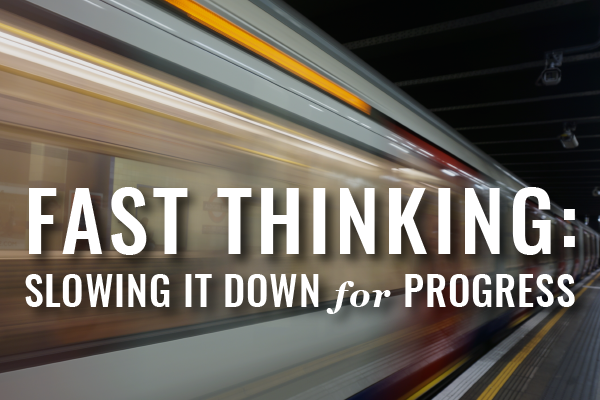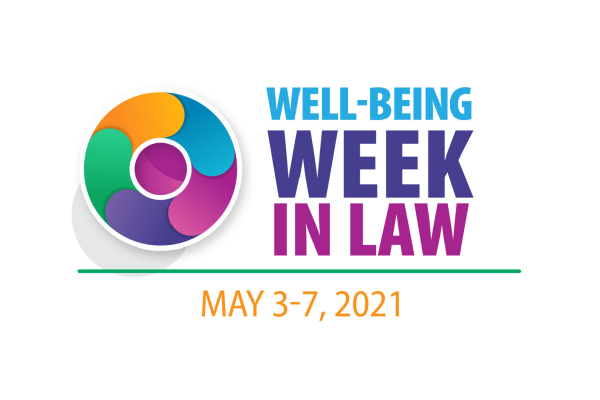Fast thinking interferes with our progress whenever we fail to scan our thoughts and process our assumptions. And it’s particularly important in legal work to isolate assumptions. Here’s what you need to understand and slow down.
In 2012, Facebook conducted an experiment to see whether it could influence the emotions and postings of its users by curating news feed content calculated to manipulate mood. The experiment worked. If you had any doubt that your decision-making is affected by forces that fall below your radar, this should make it clear that even if you are not interested in knowing how you make decisions, other people are.
Neuroscience has made its way into mainstream thinking and lawyers are catching up. We’re beginning to talk about the impact of neurochemistry on our decisions about who to hire and how we apply objective standards in subjective ways to evaluate performance and allocate compensation and rewards. Some dialogue about how our selection decisions for standards are affected by unconscious forces, when we are selecting criteria for organization, group, or individual performance evaluations is bubbling to the surface. Unconscious forces pervade our thinking, feelings, and decision-making every day; yet, there is little talk about this reality.
More important than discussing the exact neuroscience behind behavior is to acknowledge the possibility that your decision-making isn’t always as logical as you think it is. Do your actions – communication and behavior – always match up with your intentions and aim? If you agree that it’s possible that on occasion your decisions are flawed, then it makes sense to develop self-awareness of how you make decisions and a strategy to stop, evaluate, and perhaps slow down your fast thinking when it happens.
FAST THINKING AND ITS IMPACT ON DECISIONS
Nobel laureate and founder of behavioral economics, Daniel Kahneman, explains fast thinking. There are two systems of thinking; system 1 is fast and based on a gut reaction, while system 2 is slower, conscious, and deliberate. Fast thinking is the unconscious bias that affects our thinking, decisions, and behaviors. It can, under certain circumstances, lead to unintended outcomes.
The phenomena that comprise fast thinking are pervasive. They affect how we feel and what we think. They affect our perception of events – what we notice and miss – and decisions about meaning and what to do. There are times when fast thinking creates the results we want. This column is about the times is creates results that do not match our intention.
Without you knowing it, your fast thinking may lead to miscommunication and misunderstanding. It may cause you to negotiate a less-advantageous agreement or lose a prospect or client. It may create chaos in the workplace and interfere with good client relationships, colleague collaboration, and effective organization performance. Understanding when your tendency to think fast is triggered is the first step.
Psychologists have been talking about schemas, mental models, mindsets, heuristics, and scripts for years. These refer to mental short-cuts to save time when making decisions. For example, a captain of a sinking ship needs to think fast and lead in a directive way. It’s an emergency. There is no time to waste and resort to habits on how to respond to emergency situations is required for effective leadership to keep people safe. However, most situations are not emergencies.
Stressful situations trigger most people to behave as if there is an emergency and resort to fast thinking. Most people feel stress when they are tired, ill, angry, afraid, excited, joyous, or under the influence of any strong emotion. Then, they fall back on mental short-cuts to save energy. Unfortunately, in many of these situations, fast thinking leads to more problems than it solves.
Everyone has unconscious biases affecting decisions every day. These fast ways of thinking remain unconscious, without reminders to look for them. They exist to protect self-interest, even when slower, more deliberate decision-making is needed to make the right decision that is actually in one’s self-interest. Sometimes, we cannot know what we don’t know and must rely on feedback from others for a fact-check to avoid jumping to the wrong conclusions. If a goal is to make evidence-based decisions, then knowing common mental short-cuts is a start. Here are a few.
Anchoring: The hidden process of anchoring makes the first piece of information you notice seem to be more important. It blocks thinking about possibilities. In a negotiation over money, the first number heard sets the tone and movement for the entire negotiation. This doesn’t mean that if you throw out an unreasonably high or low number, you’ll end up with a higher or lower result. The number must seem reasonable. If not, it could stall further discussions.
Availability: Giving too much weight to personal information and not enough weight to the array of relevant information. E.g. Believing that success is based on hard work alone because of personal experience that minimizes the value of being born into a powerful network that has presented opportunities and affected performance evaluation or the resources to improve performance ability.
Representativeness: Predicting that a certain person will have certain characteristics or abilities based on their similarity to a stereotype. E.g. Judging mathematical ability by the choice of attire – a pen in a shirt pocket with a pocket protector. E.g. Expecting that a parent, who could not travel for work one week, shouldn’t be offered a travel opportunity for a different week.
Loss Aversion: Avoiding feelings of loss. All change efforts involve the sense of loss of certainty and what is familiar even when change leads to a financial or other gain. E.g. Choosing to stay in a job that makes you unhappy instead of exploring other possibilities for fear that you’ll lose a safe situation.
Confirmation Bias: Noticing and accepting only information that confirms your position, while not noticing or ignoring evidence that undermines it. E.g. An expert witness examines evidence that is open to interpretation after seeing other evidence of an accused’s guilt and interprets it in strong support of guilt. E.g. You have already decided that you do or don’t want to confront a co-worker on their behavior that was hurtful and unprofessional. When you consider your decision, all you notice are reasons that support it. E.g. You know that attending events is important to meet new people and nurture existing relationships, yet do not like networking. You find reasons to skip the event, go late, leave early, and approach it without any plan.
TIPS TO SLOW DOWN TO SYSTEM 2
Develop a habit of scanning your feelings – physical and emotional. Strong feelings can impact your ability to make reasoned decisions. Learn to notice when you are feeling stressed emotionally or physically. Learn to recognize your emotions. Stress, illness, tiredness, anger, fear, excitement, and other physical and emotional feelings play a role in your decision-making. Expect fast thinking any time you are trying to make a personal change or a change to the way you run your business.
- If you are having strong feelings, stop and think about how they are affecting your decision-making ability.
- If possible, postpone important decisions until you are feeling more neutral.
- If postponing is not an option, use your emotional intelligence skills. Take a deep breath and manage your emotions.
- Schedule important decisions for a time when you have enough energy to contribute to the task. Don’t make important decisions when you are hungry or tired.
- Take your time to make important decisions. Think about them overnight. Consider possible outcomes to your behavior, including your feelings. Ex. If you send an angry email and get not response or an equally harsh reply, how will you feel?
- Incorporate processes to avoid wasting energy on routine decisions or allowing your fast thinking to intervene when inappropriate. For example, read and respond to email at certain times of the day instead of allowing it to interrupt your work.
- An effective way to counter your own confirmation biases is to ask others for their perspectives on the data behind your decision and the decision itself.
- If you make a mistake, acknowledge and correct it as soon as possible. The risk of not doing so is piling on self-serving justifications for making the mistake.
- If you gravitate toward the first suggestion or idea, gather more information about the purpose or goal for accepting the suggestion or idea and then re-evaluate whether the first one is the best.
- Never assume how someone else is thinking and feeling. Never assume that you know what they are capable of doing. Our assumptions are often based on incomplete or irrelevant data. Force yourself to prove your assumptions are true before you take them as fact.
CONCLUSION.
Fast thinking can interfere with client, colleague, and self-communication. Ultimately, what matters is whether the ways you think, feel, and act are moving you closer to your goals or further from them. Managing or leveraging fast thinking biases begins with self-awareness and self-management.
Deliberate system 2 thinking can even help you overcome indecision. If you struggle with indecision, you can find out how to get more comfortable with imperfect decisions in this blog post from our clinical team.
. . .
This post was originally published in the April 2018 edition of Massachusetts Lawyers Weekly as “Is fast thinking slowing you down?”




